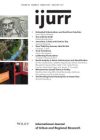This paper investigates the rationale for land law reforms as well as their implications for different societal groups in Cameroon. It is revealed that the rationale — that is, to place as much land as possible in state hands — has remained unchanged since the colonial era. The study further shows that the land law reforms have always been skewed in favour of political and bureaucratic elites, entrepreneurs and the salariat at the expense of women in the informal sector, ethnic minorities and the poor. Thus, a potent consequence of land law reforms in Cameroon is that they have effectively accentuated socio‐economic inequities characteristic of the country. To remedy these problems, it is recommended that authorities seek to create some fit between the ‘modern’ land tenure system and the traditions, culture and beliefs of the Cameroonian society. Additionally, it is recommended that serious efforts be made to institute programmes designed to redistribute income and improve the performance of the bureaucratic machinery, particularly the institutional framework for land policy administration.
Details
Written by:
Ambe J. Njoh
Digital Object Identifier (DOI)
10.1111/1468-2427.00149
About DOI
Read full article as PDF
Read full article as HTML
See the references for this article
